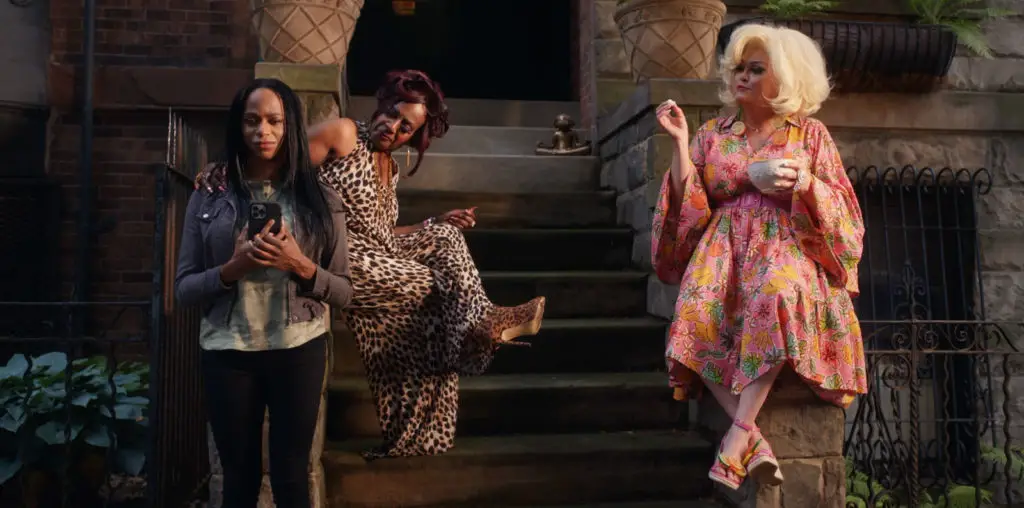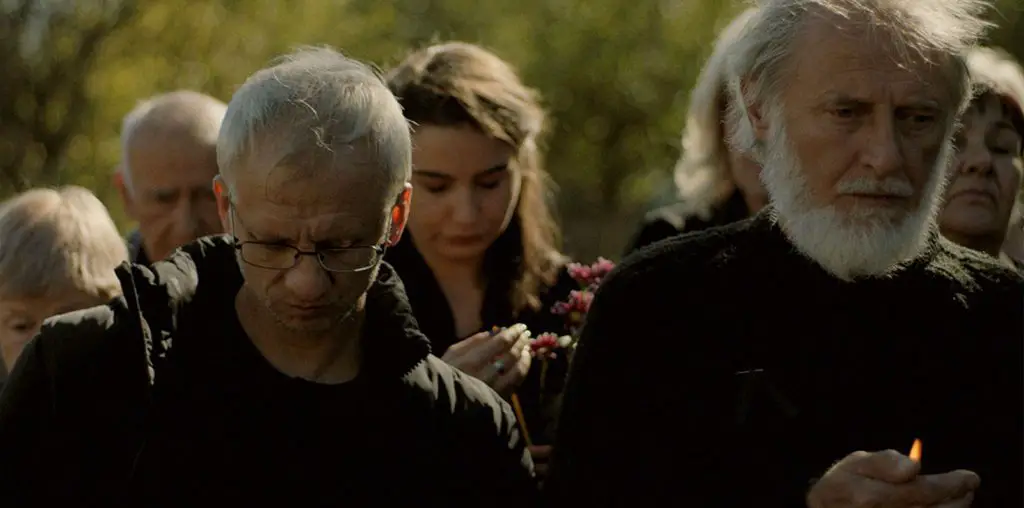
When I interviewed writer/director M.A. Littler (The Road to Nod) for Z Magazine many months ago, his documentary was not yet ready for my viewing. Littler, a man who is no stranger to this type of film (he did the wonderful Voodoo Rhythm: The Gospel of Primitive Rock ‘N’ Roll and The Folk Singer), is known for having strong opinions and not being afraid to speak them, so I knew the interview would be interesting regardless of whether or not I saw the finished piece. When I asked Littler to tell me about The Kingdom of Survival, his words were more than enough to make me realize this was going to be an important work that would demand my attention.
Littler described his film as “a journey into the history of American dissident culture from Thoreau to the Beats, and from punk to radical politics.” He also called it a personal journey of “7,400 miles, 23 states, 29 days.” If your eyes just glazed over, this isn’t the film for you. Even if they didn’t, you may be in over your head because it’s not just a journey with a camera in tow. No, Littler has made a film that “seeks visions that challenge the status quo in a world that seems more and more like a ship sailing across oceans of fire, where the haves do as they please and the have-nots suffer as they must.” Obviously there’s no fence straddling here.
I must admit that when I learned of this film, I was a bit fearful. I had such high expectations that I thought it could not live up to what I wanted it to be. After all, just looking at the people he interviewed sent me into overdrive. Noam Chomsky. Ramsey Kanaan. Dr. Mark Mirabello. Joe Bageant. There are others, of course, but these were the names that caught my eye. When have you ever seen them in a film together? Never. You probably never will again, either.
As Littler told me, the interviewees in the film were fairly quiet and private people. “So getting them to talk was the biggest obstacle. I was interested in people and groups that challenge the status quo,” Littler explained. “For the most part they believe in self-governing their lives, mutual aid, avoidance of the international monetary system, avoidance of mainstream media, and they all believe in not blindly consuming a prefabricated culture, but instead creating your own culture. The militia, for example, sound a lot like professor Chomsky – well, when you close your eyes and ignore the rifles.”
With much trepidation, I watched the film. Up until this point in his cinematic history, Littler had failed to disappoint me, but every filmmaker has that moment. That moment where the curtain is ripped off and the one you thought was a cinematic god of one sort or another proves himself to be just as fallible as every other director. I could forgive Littler for that, but not if this was the film that did it. You can’t have such high ideals and line up interview subjects as eclectic as these and then blow it. It does a disservice to everyone involved. Yet the nature of such an undertaking means it will fail somewhere along the line. When ideals and expectations meet a finished work, the end results don’t always add up, and this film is not immune to that. It fails in one key area: it wasn’t nearly long enough.
The people in this film have important things to say, and Littler lets them say their piece before moving on to the next in line. In between interviews, he clues us in on his views of this world we live in. Back when he and I first started talking about this project, he brought up the subject of filmmaking as an act of war, and I understood that perfectly and it is quite clear here. If you have the power to tell a certain story or offer a certain set of ideas, shouldn’t you do that instead of pursuing something that has no value beyond making film studios money? Any filmmaker can make Larry Crowne. Few could make this film. Scratch that. Nobody else could make this film. It’s too personal. This is the director’s wake-up call to the sleeping, and rallying point for those who are already on this path of consigning the current political and social culture to the trash heap.
Whether it’s Chomsky talking about the illusion of capitalism or Sasha Lilley detailing how the act of the lone individual is far less effective than the act of the group, there is wisdom to be found here. Viewers may not agree with all of this, but there is a message for everyone, though I fear that this film won’t be seen by the people who need to see it the most, as is often the case. It is a point I brought up in my interview. Littler didn’t seem to care, though. He didn’t mind preaching to the converted or the soon-to-be converted. “It’s a film for anyone who thinks there may be more to human existence than wage labor, down payments, taxes, supermarkets and remote-controlled citizens,” he told me. On that level, this film not only succeeds, but makes itself important. If it doesn’t inspire some kind of conversation, it didn’t fail. You did. There aren’t many films you can make that claim about, but this is one of them, and it needed to be about four hours in running time just to scratch the surface of what is presented here.
All complaints about running time aside, there is one other point that must be made. Too often activist films (and yes, this is an activist film in the sense that it is anything but passive) look like crap. In the book Realizing the Impossible: Art Against Authority, writer/activist Kyle Harris has an essay titled “Beyond Authenticity: Aesthetic Strategies and an Anarchist Media” where he takes that media (propaganda films and whatnot) to task for its creators’ inability to keep anyone’s attention. “Created with limited resources and training,” he writes, “the movies’ technical and structural flaws undermine the power of the story.” Littler’s film does not suffer from any such problem. He is a filmmaker who not only understands the medium, but has skills, as well. His movie looks slick. It sounds slick. It is edited properly. This is a film first and foremost, and it looks the role. There are no amateurish moments here. There are no shots that aren’t well-planned and executed. It is professional through and through.
Many will even compare it in some ways to the films Michael Moore has made. All respect to Moore (and I do enjoy his work), but his films are loud and garish compared to this one. Where Moore screams for attention, Littler lets the words and images tell the story in a way that is as subtle as it is meaningful. Littler doesn’t need flashy graphics, cartoons and shock to make his point heard and known. He relies on the wisdom of the ideas presented to sell themselves, and it works.
Littler describes his filmmaking as “zen anarchist pirate cinema,” which is hard to comprehend until you see this. Once the credits hit, you’ll not only understand it, you’ll also realize you just experienced something quite unlike what you expected. And that is the ultimate prize for those who love filmmaking. If this comes through your town, I recommend you catch it. I guarantee it will get your mind firing in ways the latest Hollywood sequel could never accomplish.

